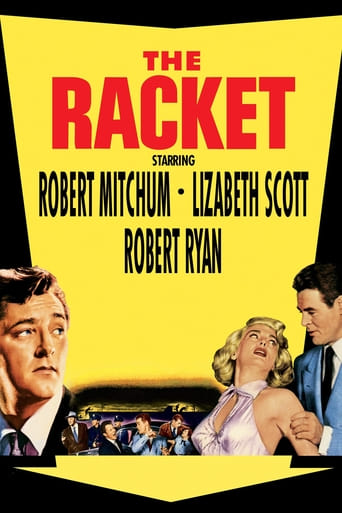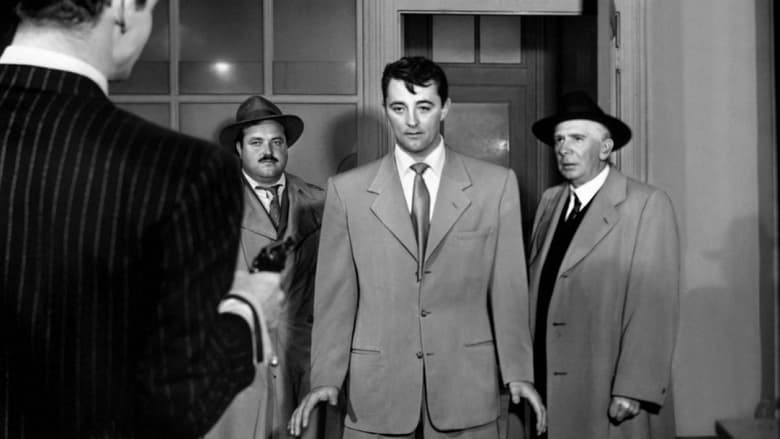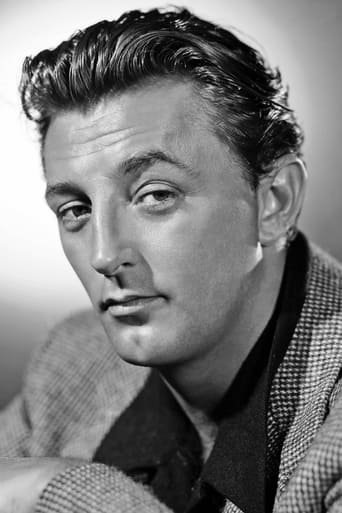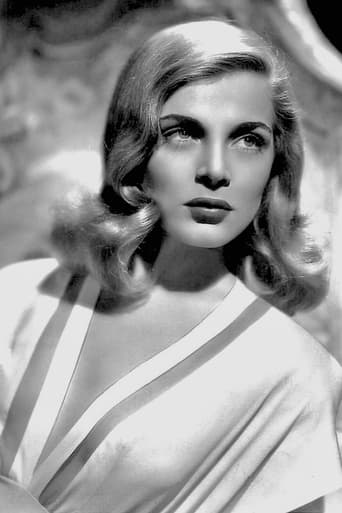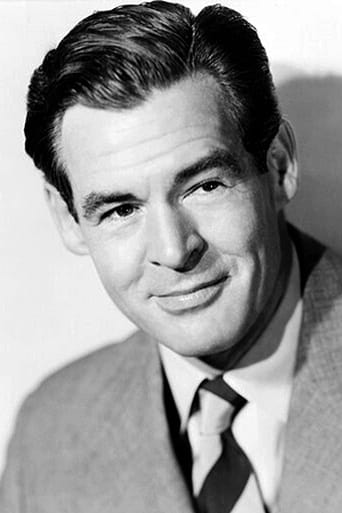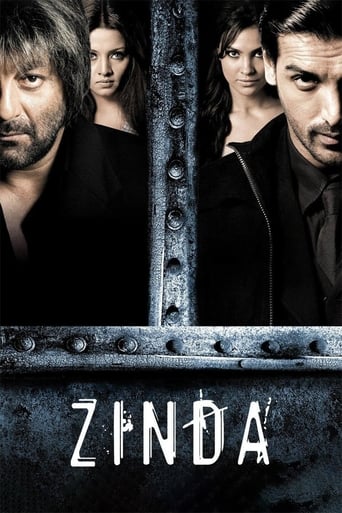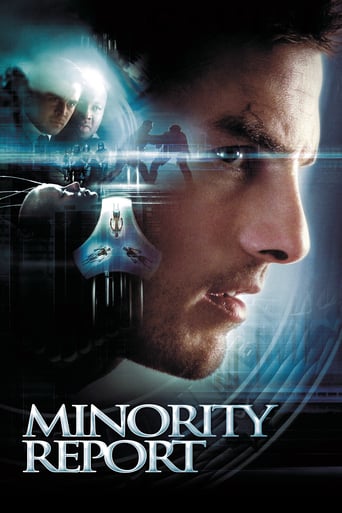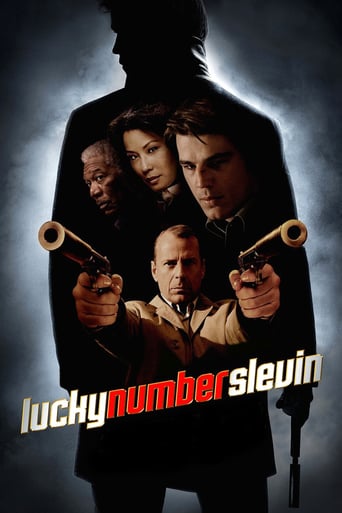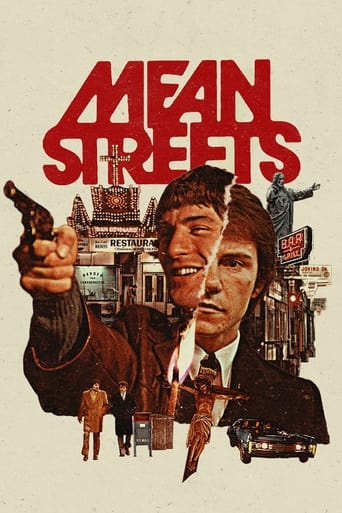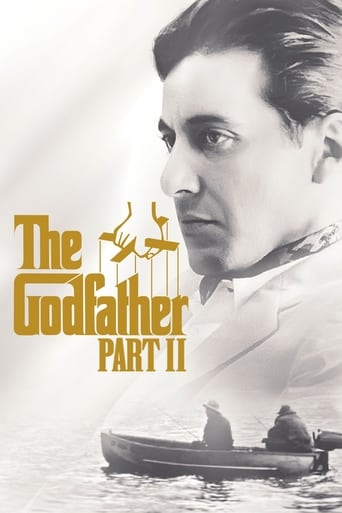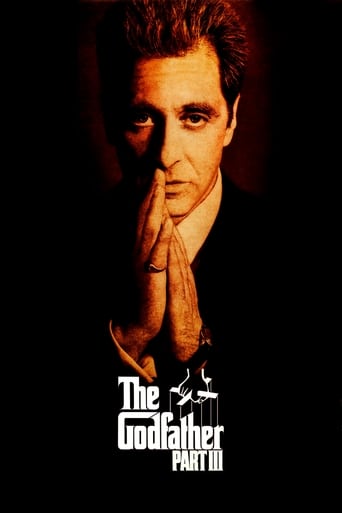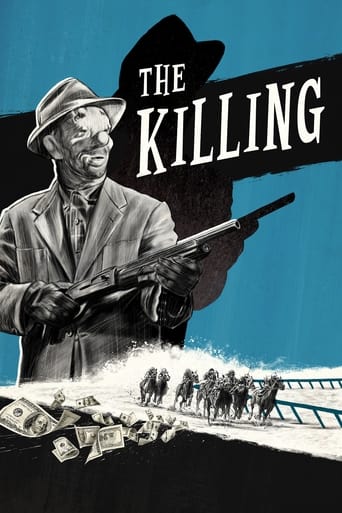The Racket (1951)
The big national crime syndicate has moved into town, partnering up with local crime boss Nick Scanlon. McQuigg, the only honest police captain on the force, and his loyal patrolman, Johnson, take on the violent Nick.
Watch Trailer
Free Trial Channels
Cast


Similar titles
Reviews
Wonderful Movie
just watch it!
While it doesn't offer any answers, it both thrills and makes you think.
Let me be very fair here, this is not the best movie in my opinion. But, this movie is fun, it has purpose and is very enjoyable to watch.
A sluggish, middling film noir rescued by the sturdy presences of its two lead stars, "The Racket" (1951) should prove of interest for all fans of this most American of cinematic genres. Producer Howard Hughes, who had just acquired a controlling interest in RKO three years earlier, had also been the producer of the 1928 silent film called "The Racket" (based on the stage play by Bartlett Cormack, which had featured Edward G. Robinson in the role of "the heavy"), and apparently thought this old property a perfect one for updating, as Tennessee Senator Estes Kefauver and his investigating crime commission were then making headlines. Hughes brought together RKO's top two leading men, Roberts Mitchum and Ryan, hired John Cromwell to direct (Cromwell's "Caged," released a year earlier, had turned out to be a noir masterpiece), and engaged Sam Fuller to write a script (Hughes ultimately rejected the script and got William Haines to do a complete rewrite). As it turns out, though, despite all this great talent involved, and the assistance of a wonderful cast of supporting actors, the resulting film is a bland affair; somewhat slow moving, deficient in suspense and action, and even scarce in the juicy dialogue department. Still, as I said, the picture is certainly not without interest.In the film, Mitchum plays Capt. Tom McQuigg, seemingly one of the few honest cops in the purposely unnamed midsize city where the picture transpires (it is Anywhere, America). As head of his precinct, McQuigg's main concern is his childhood acquaintance Nick Scanlon (Ryan), a criminal boss whose old-school, violent methods have begun to rankle the more businesslike Syndicate that has been making inroads everywhere and bribing such figures as the Assistant D.A. Welch (played by the great character actor Ray Collins) and the police commissioner himself (William Conrad, perhaps best known today as TV's Cannon). With the Syndicate backing Welch in an upcoming election, matters between McQuigg and Scanlon come to a head, and are escalated when honest Officer Robert Johnson (not the bluesman, but rather played by William Talman, who many will recall as Perry Mason's adversary Hamilton Burger; an odd casting choice, for this viewer, since I recall Talman best as psycho fugitive Emmett Myers in Ida Lupino's great film noir of 1953, "The Hitch-Hiker") sets himself up as a decoy, and when nightclub chantootsie Irene Hayes (Lizabeth Scott, born Emma Matzo, who had previously been directed by Cromwell in the Humphrey Bogart 1947 noir "Dead Reckoning"), formerly engaged to Scanlon's kid brother, decides to testify against him...and thus, like Johnson, setting herself up for elimination by the Mob....The two Roberts, who had previously appeared together in the infinitely superior noir "Crossfire" in 1947 and would costar, many years later, in "The Longest Day" (1962) and "Anzio" (1968), DO work very well together here, although Ryan easily dominates the proceedings, his seething, violent Scanlon ("I was running this town when you cheap jerks were still eating at diners!") ever so much more memorable than Mitchum's overly laid-back McQuigg. Scott, despite her rather underwritten character, yet manages to make an impression, and gets to lip-synch the song "A Lovely Way to Spend an Evening" in a rather dingy-looking nightclub setting. Besides the great character actors already named, "The Racket" features Robert Hutton (future director of the 1962 schlock favorite "The Slime People") as a young reporter, Les Tremayne (who would appear IN "The Slime People"!) as the crime commission head, and Herb Vigran (as that nightclub owner) and Tito Vuolo (as Nick's barber), whose faces should certainly be familiar to baby-boomer fans of the old "Adventures of Superman" TV show. The film, despite its dearth of action, yet manages to offer at least four scenes that are comparatively gripping: a Mob-orchestrated explosion in McQuigg's house, a foreshadowing of a somewhat similar sequence in the awesome noir "The Big Heat" (1953); a nighttime dukeout that McQuigg engages in atop a roof with a Mob thug, with no musical accompaniment; a high-speed car chase between Nick and the cops; and the arrival of a pair of hit men at Johnson's suburban home."The Racket" is currently available on a fine-looking Warner Bros. DVD and features one of the best commentary tracks that I've heard in ages. This commentary, by the founder of the Film Noir Foundation, Eddie Muller, shows off Muller's encyclopedic knowledge in a highly conversational, understated manner. Among the dozens and dozens of fascinating tidbits that Muller shares with us is the fact that, despite his 1948 arrest for marijuana possession, Mitchum continued to enjoy the support and loyalty of Howard Hughes (who effectively salvaged his career). He also tells us that the Irene Hayes character was called "Helen Hayes" in the 1928 screen version, a name that had to be changed for obvious reasons; that Nicholas Ray directed numerous scenes after the shooting wrapped (the opening sequence in the governor's office, Mitchum's entrance, the rooftop fight, the nightclub scene, etc.); and that the two main differences between the two versions are the beefing up of the Johnson character and the introduction of the Syndicate angle. He also mentions that he prefers the silent version to the one under discussion here, which makes one wish that this original were available on DVD. The fact that it is not might warrant the investigation of a "crime" commission itself....
Slightly above average crime drama with Film-noir elements that has some outstanding highlights and some very pedestrian lowlights.A couple of realistic action pieces and a vile, nasty performance from Robert Ryan are negated by some contrived side elements and stiff political posturing, and very weak love interests.Surprisingly the real bad guy..."the old man" who is the head of the crime syndicate is never brought to justice, or for that matter even identified. This is an intentional cover-up by the filmmakers and deliberately deflected at the end. As if to say, no matter how many of these street thugs we arrest, the master criminals of the Racket are above the law.This was a bold "oversight" slipped in, from an industry that was hand-cuffed by a code that stated...CRIME DOES NOT PAY. Very clever.
During the 1940's and 50's it was easy to watch a crime/drama and with little effort, would be able to identify the good guys from the bad guys. This particular story called " The Racket " is based on the play written by Bartlett Cormack and was directed by John Cromwell. In it we have Robert Mitchum starring as Captain Thomas McQuigg, a no-nonsense, hard-bitten cop of the Old School who has decided to run a clean precinct. He does this by going after Nick Scanlon (Robert Ryan, who is at his best) as the most notorious mobster around. Scandlon believes his methods are fool proof and so effective he does not need to adapt. After all, he is backed up by 'The Big Boss', a corrupt District Atty. Mort X Welsh and an equally corrupt Det. Sgt. Turk (William Conrad.) The movie is standard Black and White 1950's drama with sufficient excitement to keep the characters alive and interesting. The audience is entertained and throughout the length of the story kept alert enough to learn the outcome. Excellent film fare. ****
Any movie with principals like Robert Ryan, Robert Mitchum, and Lizabeth Scott certainly sounds "noir", especially with support like William Conrad and William Talman. But this isn't. It's more of a "detective story." That may be just as well because I understand that some people have difficulty pronouncing the word "noir." Briefly, Mitchum is the new Chief of Police brought into District Seven to clean up some of the corruption, which, as it turns out, leads all the way up through the judicial system. Mitchum is the straight arrow. He wears a suit and tie and has a domestic life, as hard as that is to believe.The proximate bad guy is Ryan as Nick Scanlon. He runs all the local rackets in this unidentified city with the connivance of the politicians. He's Ryan-as-bad-guy through and through. He never asks for quarter nor does he give any.This puts him on the spot because The Syndicate is moving into more sophisticated territory, with front organizations like The Acme Real Estate Company, money laundering, and probably structured derivative instruments. Ryan knows nothing about this stuff. He's an old-fashioned kind of gangster. Somebody gets in his way, he spanks him.The plot gets kind of complicated. Talman is a good cop who arrests Ryan's brother for carrying a concealed weapon. That puts him in bad with Ryan and he pays the price. Lizabeth Scott and Robert Hutton are folded into the story with nothing much to do.Most of the scenes are static shots of people standing around and talking. There are some brief action scenes too -- the obligatory car chase through the city streets, the explosion of a bomb on Mitchum's porch, two shootings. Well -- three, I guess, but the third takes place off screen and is pretty well handled.Some of the action scenes are less than well done. Mitchum and a horde of cops have a couple of hoods cornered in the garage of an office building. Mitchum pursues one of them up the stairs to the roof, where they have an ill-staged brawl. And what do the rest of the police do? Instead of rushing to his aid, they stand on the street below, with their arms folded across their chests, and watch the fist fight with considerable interest.Mitchum, when he got a good part, could really rise to the occasion, as he did in "Night of the Hunter," "Cape Fear," "The Sundowners", and "Farewell, My Lovely." This part must not have engaged him because he walks through it without any expression except an occasional smirk.The steely-eyed Ryan, on the other hand, is a cauldron of emotion. He has a terrific scene in which he tells Mitchum of the trouble his younger brother has caused him. Something like, "I paid his way through four colleges. FOUR! I even had to buy a chair at one of them. Well, not a chair. They call it an endowment." (Ryan kicks a chair.) The poor guy is beset by problems -- what with his brother determined to marry that night club canary, Scott, and the pressure from The Old Man above to lay off the rough stuff. Sometimes a man can't win for losing.

